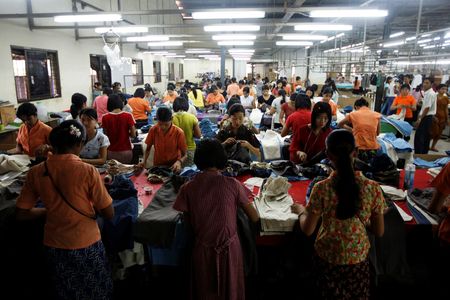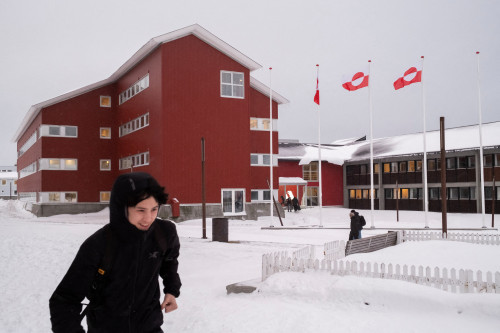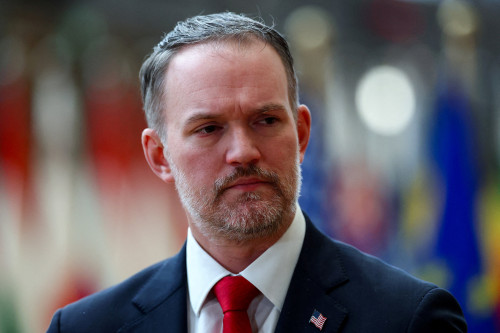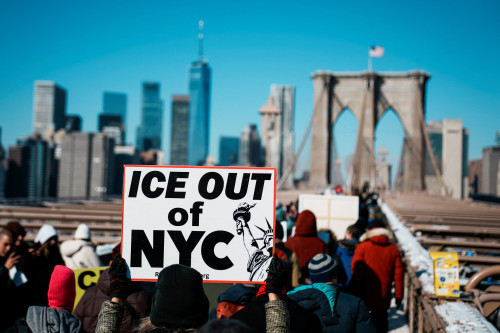By Helen Reid
LONDON (Reuters) -The world’s second-biggest fashion retailer, H&M, has decided to gradually stop sourcing from Myanmar, it told Reuters on Thursday, as reports of labour abuses in the country’s garment factories increase.
H&M became the latest brand to cut ties with suppliers in the country after Zara owner Inditex, Primark, Marks & Spencer and others.
While recognising the challenge companies face to ensure they are not linked to abuses, some experts say the exits could ultimately leave workers in the country worse off.
A military coup in February 2021 plunged Myanmar into a political and humanitarian crisis, with widespread violence also disrupting the economy.
“After careful consideration we have now taken the decision to gradually phase out our operations in Myanmar,” H&M said in an email to Reuters.
“We have been monitoring the latest developments in Myanmar very closely and we see increased challenges to conduct our operations according to our standards and requirements.”
Myanmar government spokesman Zaw Min Tun was not immediately available to comment on H&M’s announced exit.
H&M said on Wednesday it was investigating 20 alleged instances of labour abuse at Myanmar garment factories that supply it, as a UK-based NGO said cases of alleged abuses including wage theft and forced overtime have multiplied since the coup.
In a report published Wednesday the Business and Human Rights Resource Centre (BHRRC) said it had tracked 156 cases of alleged worker abuse in Myanmar garment factories from February 2022 to February 2023, up from 56 a year before, indicating a deterioration of workers’ rights.
Reuters did not independently verify the allegations. H&M said its decision to exit was not linked to the report’s publication, but was the result of its own evaluation of the situation.
The garment sector is a key employer in the Southeast Asian country, where mostly women workers produce clothes and shoes for major brands in more than 500 factories.
Garment exports from Myanmar fell in the first five months of 2023, the World Bank said in a June report.
H&M has 39 factories in Myanmar supplying it, according to its public supplier list.
“I regret H&M’s announcement, as it will have a negative impact on thousands of women workers in Myanmar,” said Vicky Bowman, director of the Myanmar Centre for Responsible Business and former British ambassador to Myanmar.
“But in the light of the increase in arrests by the SAC of trade union organisers, as well as members of Action Labor Rights, a labor rights organisation whose input has been very important to H&M’s heightened human rights due diligence, I am not surprised by their decision,” she added.
The State Administrative Council (SAC) is the official name of Myanmar’s ruling military junta. Action Labor Rights did not immediately reply to a request for comment.
H&M said its exit would follow a “responsible exit framework” developed by IndustriALL, a global union that has been campaigning for brands to stop doing business in the country, and that was cited by Inditex as a reason for its withdrawal.
Bowman said she hoped H&M’s exit would be transparent and gradual over the course of at least a year, and that the company would provide support to workers and factories on the ground.
Primark, which announced its exit in September last year, said on Wednesday its last orders would be shipped from Myanmar by the end of this year. The affordable fashion retailer said it had doubled its staff in Yangon since announcing its withdrawal.
Britain’s Next set out the dilemma facing brands in its response to the BHRRC survey, which was conducted in April.
It said it had considered withdrawing from Myanmar, but “whilst it can send a clear signal to the local government that its policies and practices are unacceptable, it can do huge damage to local communities and workers, depriving them of desperately needed investment and wages.”
On Thursday Next said its position on Myanmar has not changed.
Big corporations in other sectors have also withdrawn from Myanmar, with oil majors TotalEnergies and Chevron announcing their exit in January last year.
(Reporting by Helen Reid, Additional reporting by James Davey; Editing by Matt Scuffham, Kirsten Donovan, Frances Kerry and Jan Harvey)






